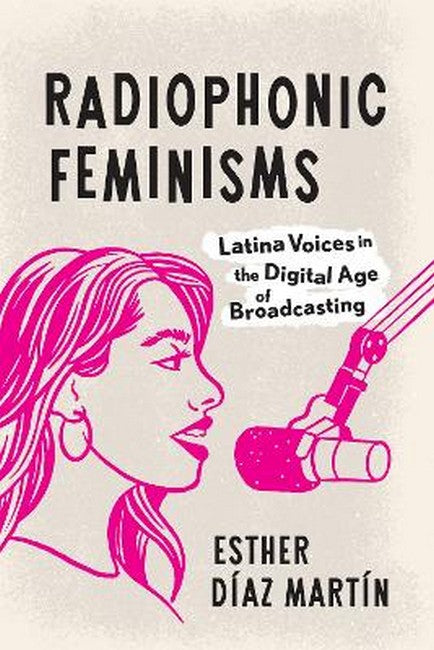Esther DIaz MartIn is an assistant professor in the Department of Latin American and Latino Studies and the Gender and Women's Studies Program at the University of Illinois Chicago.
Request Academic Copy
Please copy the ISBN for submitting review copy form
Description
List of Illustrations Note on Language Introduction: What Does Latina Feminism Sound Like? 1. Listening within Nepantla: A Chicana Methodology 2. Alicia AlarcOn en AcciOn: Voicing Latino Working-Class Feminism on AM Talk Radio 3. Marlene Quinto, "La Vozalona": Sounding Feminist Desmadre 4. MamAs, M(others), and Mamis: Convivencia in Latina Podcasting Afterword: Sound as a Point of Departure Acknowledgments Notes Bibliography Index
Anchored in Chicana feminist thought, Radiophonic Feminisms boldly engages the pioneering work of Latina radio hosts and podcasters by asking: "What does Latina feminism sound like?" It highlights the ingenious ways in which Latina podcast and radio show hosts-women who are often framed as resistant "hociconas" or loudmouths-challenge the patriarchal violence to which they are regularly subjected. By focusing on the often-invisible labor of Latina radio hosts and podcasters in US Latinx sound, DIaz MartIn ultimately recasts both Latina/x hosts and Latina/x listeners as actively engaged in feminist futures of their own making. Part Latina feminist manifesto, part brilliant scholarly analysis, Radiophonic Feminisms represents some of the most cutting-edge intellectual work in Latinx sound studies and Latina feminist studies today. - Maria Elena Cepeda, Williams College, coeditor of The Routledge Companion to Latina/o Media A much-needed and timely account of how Latina locutoras-from broadcasting to podcasting and in both Spanish and Spanglish-have nurtured our nepantlera mode of listening. - Dolores Ines Casillas, UC Santa Barbara, author of Sounds of Belonging: U.S. Spanish-Language Radio and Public Advocacy An impressive and sophisticated look at the lively and varied voice soundscapes that have emerged in Latina/Latinx podcasts in the US in recent years. DIaz MartIn's introspective, memoiristic writing makes for a rich exploration of important feminist and Latinx scholarship and, what's more impressive, an example of the kind of writing that truly embodies important insights about authorship, knowledge, and knowledge production within communities of resistance. This will surely be a worthy contribution to the growing shelf of work on Latinx radio in the US. - Jason Loviglio, University of Maryland, Baltimore County, author of Empathy Machines: This American Life, Podcasting, and the Public Radio Structure of Feeling

